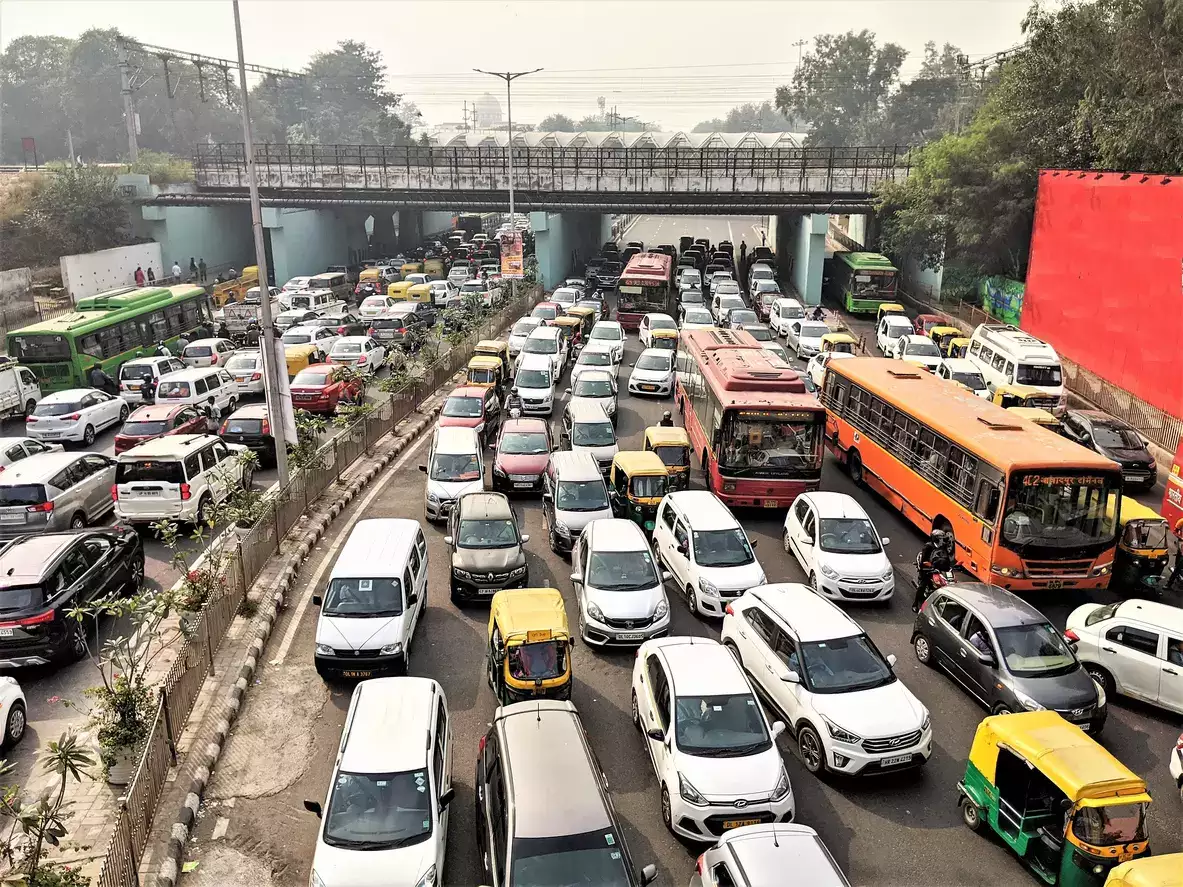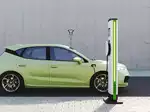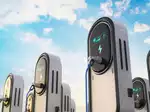Transport dept plans congestion charges, EV trucks to ease woes

The initiative encompasses establishing vehicle-restricted areas; transitioning municipal vehicles and final-delivery transport to electric alternatives; introducing congestion pricing; strictly enforcing only BS6-standard or electric trucks; and ensuring scrapping of overaged vehicles.
In a bid to curb snarls and pollution, the department, along with a think tank, has prepared an outline for introducing congestion pricing. The plan involves imposing charges on vehicles entering the city at 13 major border points. The think tank has suggested that charges could be collected from private four-wheelers and commercial vehicles during peak hours – 8am-10am and 5.30pm-7.30pm.
It has also suggested that vehicle detection be done using automatic number plate recognition (ANPR) and radio frequency identification (RFID) technologies. Additionally, congestion charge determination should be based on the baseline price, varying with GRAP levels, vehicle fuel type and BS emission standards.
The amount collected as congestion charge and related penalties can be exclusively used for augmenting public transport and improving roads, particularly for the most vulnerable users, including cyclists and pedestrians, the think tank has suggested.
A senior transport department official said while the initiative remains under consideration, several legal obstacles need resolution before its implementation, particularly since the legislation does not clearly specify provisions for such fees. The official suggested that executing the scheme before the elections would be challenging, although it remains part of the department’s strategic planning for the future.
On establishing vehicle-restricted areas, the official said the department was preparing a plan in this regard. The areas are yet to be defined, but the idea is to create car-free zones in places that are shopper-friendly, he said. This, he added, would require cooperation from other agencies as well so that the entire area can be made pedestrian-friendly.
As far as transitioning municipal vehicles and final-delivery transport to electric alternatives is concerned, the department said it conducted a study to examine the feasibility of converting govt trucks into e-vehicles to reduce Delhi’s pollution levels. The study was done by the International Council on Clean Transportation. The ministry of heavy industries has set up an EV task force wherein ICCT is leading on matters related to electric trucks and supporting infrastructure in India. The department will come up with policies to promote this in its next EV policy, the official said.
On permitting only BS6-standard or electric trucks, he said traffic police regularly maintains vigil at border points. Another official said there is a plan to use artificial intelligence and technology to identify such vehicles and ensure those violating rules are penalised.

